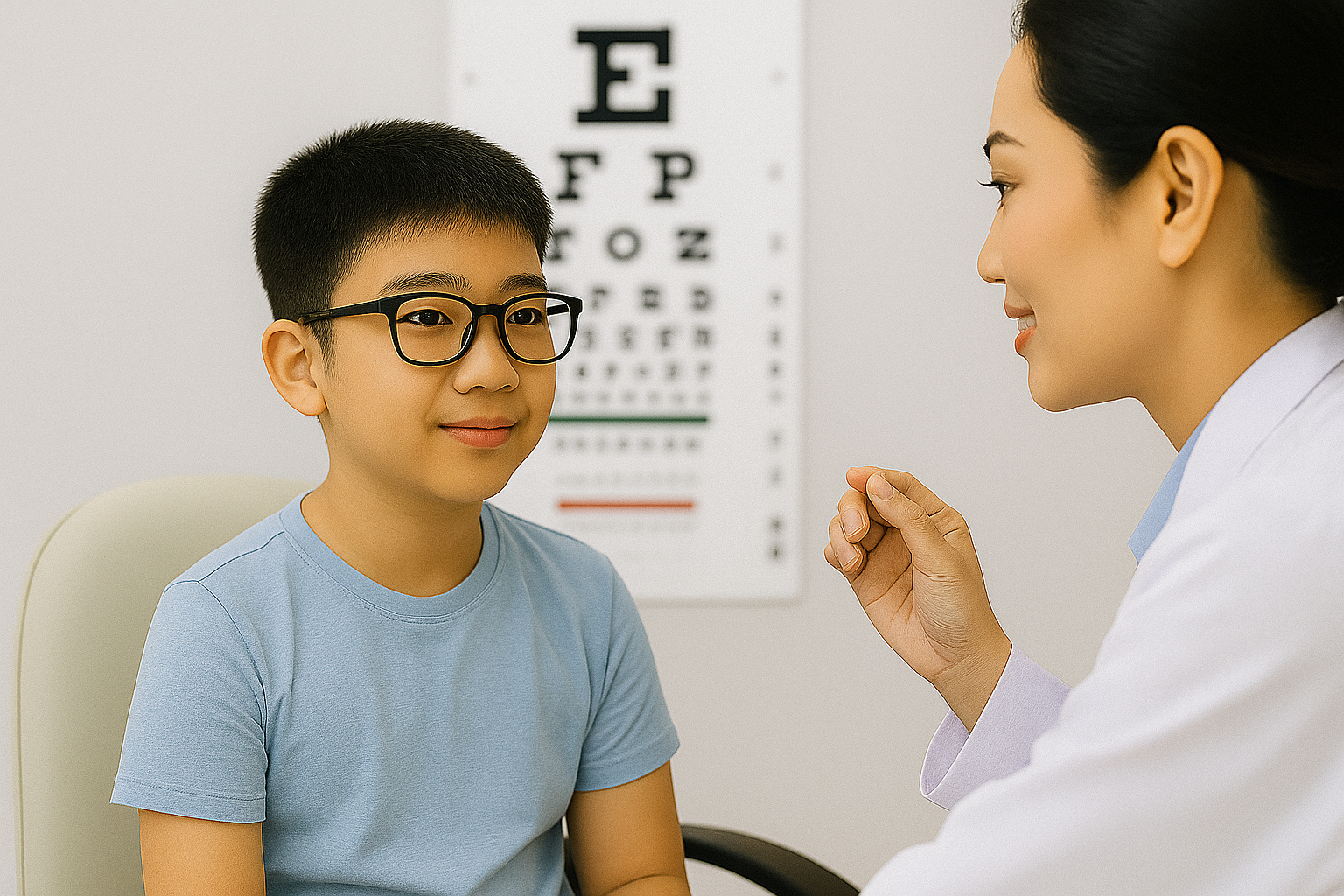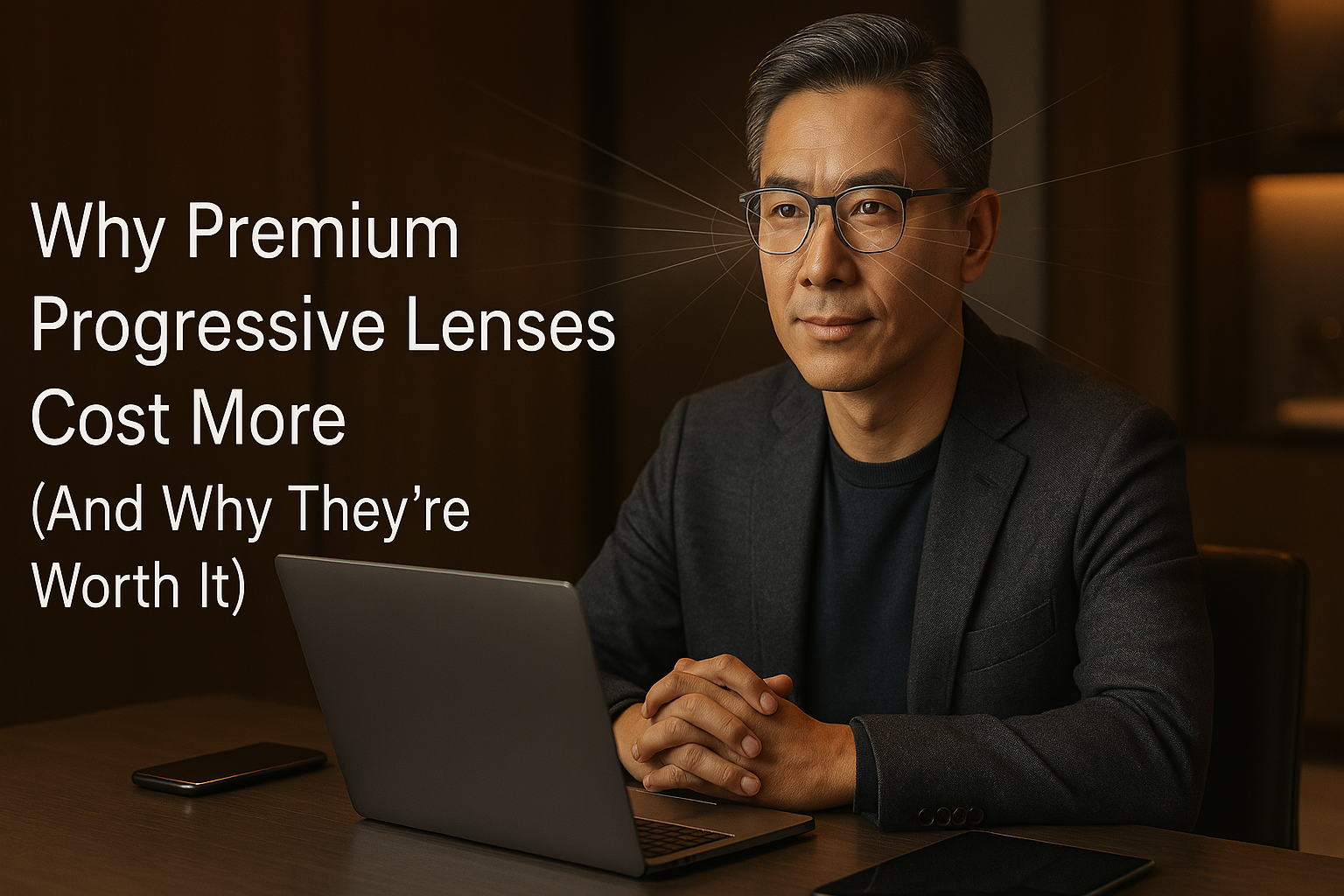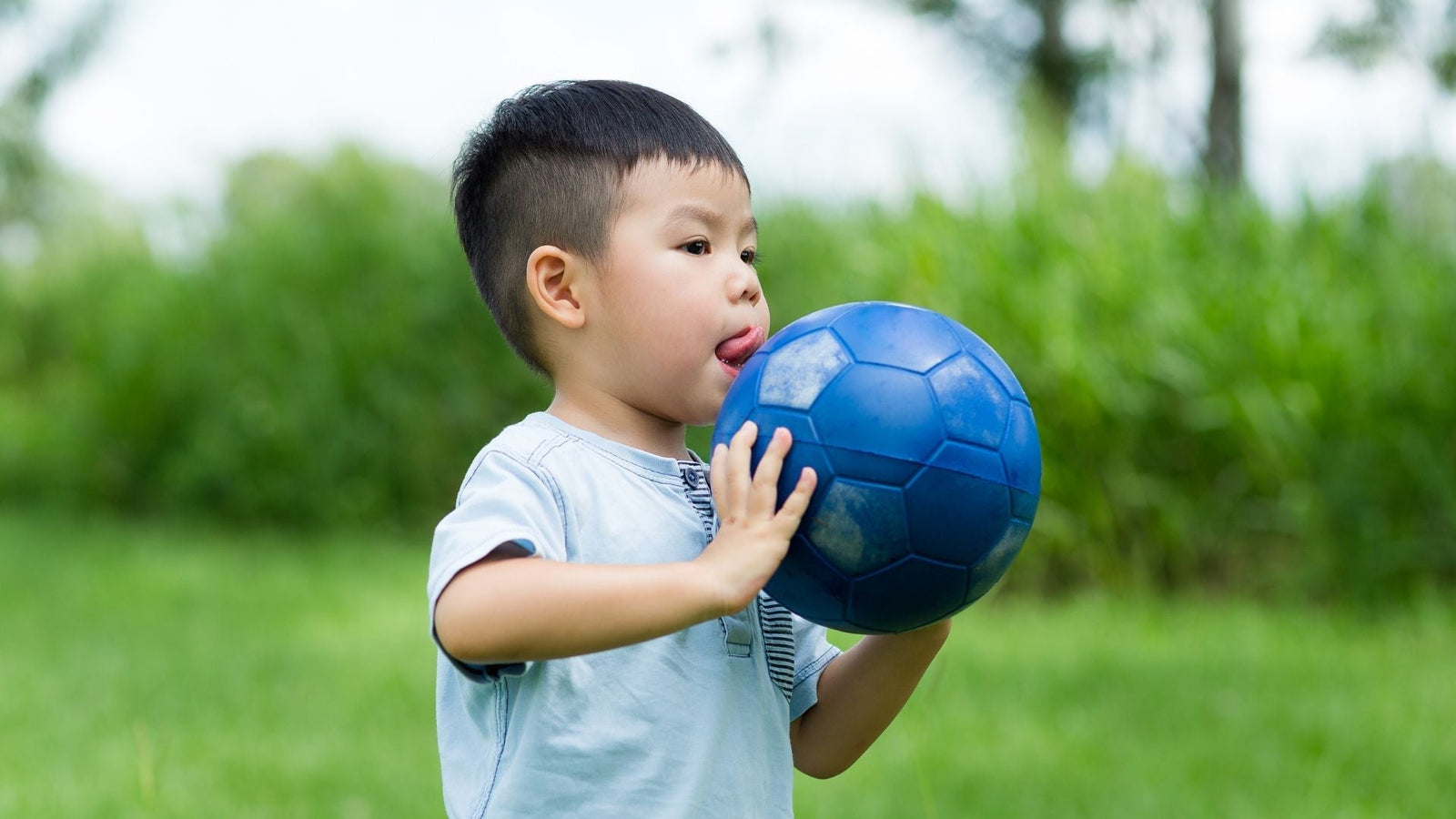Protect your family’s vision today

As parents, we bear the profound responsibility of nurturing and caring for our children, ensuring their well-being in every aspect of life. When it comes to their health, it can be emotionally challenging if our little ones inherit certain conditions from us, such as myopia, commonly known as nearsightedness. As parents with myopia ourselves, we may find ourselves grappling with guilt and self-blame for passing on this visual impairment to our children. However, it is crucial to understand that myopia is a complex condition influenced by a combination of genetic, lifestyle, and environmental factors. In this article, we will delve into these aspects to alleviate parental guilt and discover ways to actively support our children's vision health.
Genetic Factors: The Inheritance Puzzle
Myopia does tend to run in families, and if one or both parents have myopia, the likelihood of their children developing the condition is higher. But it is essential to remember that genetics alone does not determine the onset and severity of myopia. Many children with myopic parents may never develop the condition, while some without a family history may experience myopia during their childhood. Myopia's inheritance is not a parent's fault; rather, it is a natural interplay of genetic factors that we cannot control.

Lifestyle and Environmental Factors: The Modifiable Factors
Beyond genetics, lifestyle and environmental factors play a significant role in the development and progression of myopia in children. Understanding and distinguishing between these factors can empower parents to take proactive steps in supporting their child's eye health.
Lifestyle Factors:
Screen Time and Near-Work Activities: In this digital age, children are increasingly engaged in near-work activities like reading, using smartphones, tablets, and computers. Prolonged screen time can strain their eyes and contribute to the onset and progression of myopia. As parents, we can encourage regular breaks during screen time and implement the 20-20-20 rule (taking a 20-second break every 20 minutes to look at something 20 feet away) to alleviate eye strain.

Outdoor Time: Spending time outdoors has been linked to a reduced risk of myopia development in children. Natural sunlight helps in the release of dopamine, which may play a protective role against myopia. Encouraging outdoor activities and playtime can be both enjoyable and beneficial for our child's overall eye health and well-being.

Physical Activity: Regular physical activity not only promotes overall health but may also have a positive impact on eye health. Engaging in sports and other physical activities can contribute to a healthier lifestyle and may be associated with a reduced risk of myopia progression.
Diet and Nutrition: A balanced diet rich in essential nutrients like vitamin A, C, and E, as well as omega-3 fatty acids, is beneficial for eye health. These nutrients support the proper functioning of the eyes and may play a role in reducing the risk of myopia development.

Environmental Factors:
Indoor Environment: Spending excessive time indoors, especially in environments with poor lighting or close proximity to screens, can increase the risk of myopia. Creating a well-lit and comfortable study area can help reduce eye strain during near-work activities.
Reading Habits: As parents, we can encourage our children to maintain a proper reading distance and posture while reading or studying. Holding books or screens too close to the eyes can strain them and contribute to myopia.
Educational Pressure: High levels of educational pressure and near-work demands in schools can also impact the development of myopia. As parents, it is essential to strike a balance between academic commitments and outdoor activities to support our child's eye health.

Balancing Genetics, Lifestyle, and Environment: Nurturing Healthy Vision
Understanding the interplay between genetic, lifestyle, and environmental factors is crucial for effective myopia prevention and management. While we cannot alter genetic factors, parents can actively influence lifestyle and environmental aspects to support their child's vision health.
Incorporating Healthy Habits:
Set Screen Time Limits: As parents, we can establish reasonable screen time limits for our children, encouraging alternative activities that involve physical movement and outdoor play.
Promote Outdoor Activities: Encouraging our children to spend time outdoors regularly not only benefits their eyes but also fosters a deeper connection with nature and enhances overall well-being.
Educate About Proper Eye Care: As parents, we play a vital role in teaching our children about proper eye care habits, such as maintaining a comfortable reading distance, taking breaks during near-work, and following good lighting practices.
Healthy Nutrition: Providing a well-balanced diet that includes eye-healthy nutrients like fruits, dark leafy vegetables, and fish rich in omega-3 fatty acids can support our child's eye health.
Regular Eye Exams and Professional Guidance:
Regular eye examinations are essential, even if our children haven't shown any signs of vision problems. Early detection and intervention can play a significant role in managing myopia. As parents, we should collaborate with eye care professionals, seeking their guidance and expertise in addressing our concerns and making informed decisions about our child's eye health.
Myopia Management Strategies:
If our child has already been diagnosed with myopia, we should consider discussing myopia management options with their eye care provider. Myopia management strategies, such as special contact lenses, special spectacle lenses, atropine eye drops, or orthokeratology (Ortho-K) lenses, can help slow down the progression of myopia and reduce the risk of vision complications in the future.

Embrace the Journey with Compassion:
Parental guilt over genetic factors contributing to a child's myopia is understandable but should not overshadow the importance of other lifestyle and environmental influences. Let us release guilt and embrace a positive approach towards our child's vision care. By taking proactive steps and collaborating with eye care professionals, we can play a vital role in helping our children manage myopia effectively. Together, we can work towards a brighter and clearer future for our children's precious eyesight.

By Shahirah Sulaiman
Optometrist @ Eyecare People
Comments will be approved before showing up.

Late-night homework, endless tuition, and hours of gaming — today’s screen-heavy lifestyle can quietly speed up your child’s myopia. Learn how regular 3-monthly eye reviews, tailored myopia control treatments, and professional guidance can slow progression, protect long-term eye health, and help kids build healthy vision habits for life.

Think your progressive lenses shouldn’t cost more than your phone or laptop? Think again. Premium progressive lenses are precision-engineered tools tailored to your exact vision, lifestyle, and frame — using cutting-edge technology that rivals any modern device. In this article, we break down why these lenses come with a higher price tag, and why they’re worth every cent for daily comfort, clarity, and performance.

Worried your child’s myopia keeps getting worse each year despite wearing glasses? Discover how myopia control lenses like MiYOSMART, Stellest, and ZEISS MyoCare—available in Singapore—can help slow progression and protect long-term vision. Learn how to choose the right option for your child, based on clinical evidence and expert guidance.